Comparison with local rivals Swansea’s recent managerial successes doesn’t make for comfortable reading for the Bluebirds
VINCENT Tan will soon be signing off on the 10th managerial appointment of his 12-year tenure as Cardiff City owner – and arguably the most important.
Of the nine previous managers Tan has chosen, only three are currently in a job elsewhere compared to five out of Swansea’s 10 managers during this same period. Few who leave Cardiff City are poached by higher up clubs but and that is not the case for Swansea across the same period.
With the Bluebirds devoid of goals and confidence and hurtling towards a relegation disaster, Tan will need to buck the trend of previous appointments and appoint a coach who is on the upward trajectory of their career – but not a managerial rookie.
An appointment that takes a leaf out of the book of Cardiff’s old rivals down the M4 perhaps?
Amid growing fan discontent towards the situation on and off the pitch, The Cardiffian takes a look at what happened to Tan’s previous gaffers following their sackings and some of their Swans’ counterparts who went on to bigger and better things.
Malky Mackay (June 2011 – December 2013)
Malky started the Tan era off with a bang, delivering the club’s first promotion to the Premier League against the backdrop of the kit colour-change controversy. However, what should have been a memorable season the following year is now mainly remembered for all the wrong reasons.
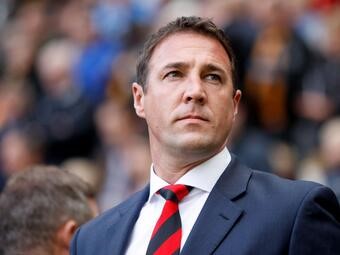
Allegations over a discriminatory texting scandal saw Mackay fall out with Tan and left him facing an FA investigation after losing his job at the club. Despite being cleared by the FA, the Scotsman failed to get another Premier League job and found himself at Wigan Athletic shortly after. He is now in charge of Ross County, who are currently bottom of the Scottish Premiership.
During Mackay’s period as Cardiff manager, Swansea had two managers – Brendan Rodgers and Michael Laudrup. The former of which went on to bigger and better things than the Cardiff City manager.
After guiding Swansea to Premier League promotion and survival, Rodgers had spells in charge of two of the biggest clubs in the world, Liverpool and Celtic, before arriving at Leicester City and winning the club an FA Cup in 2021. The Northern Irishman is regarded as one of the elite coaches in English football and is a Swansea success story to this day.
A Swansea manager moving up the footballing pyramid while a Cardiff manager drops down is a familiar trend during Tan’s ownership.
Ole Gunnar Solskjaer (January 2014 – September 2014)
The big-name appointment of Tan’s time at the helm, Solskjaer arrived against the backdrop of fan anger and protests towards Tan’s perceived treatment of Mackay.
The Norwegian eventually failed in his task of keeping the club in the top flight as the Bluebirds were relegated with a whimper. He finally received his marching orders after a poor start to his first season in the Championship.
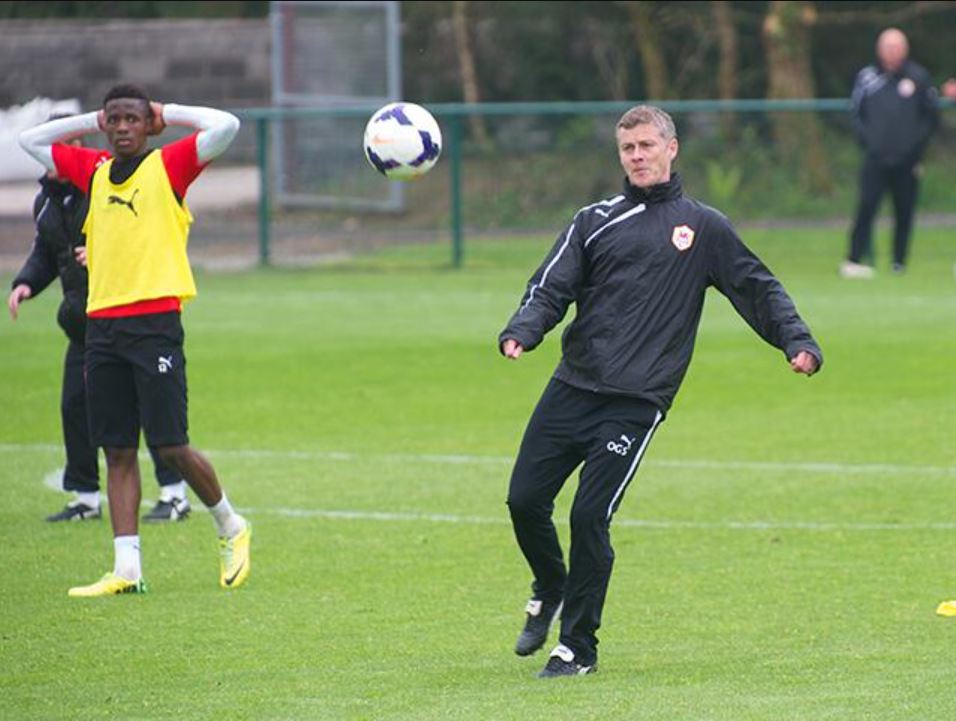
Twitter: @cardiffcityfc
After a few years back in Norway, he became the only Cardiff manager to go on to better things following his shock-appointment to replace Jose Mourinho as Manchester United boss. He spent three years at Old Trafford before departing in November 2021.
Russell Slade (October 2014 – May 2016)
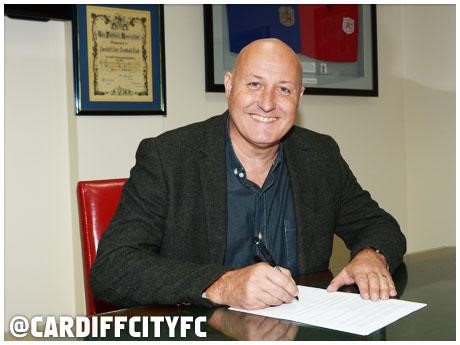
Twitter: @cardiffcityfc
The Englishman came in to balance the books post-Solskjaer at a time when Premier League relegation was taking its toll on club finances. Despite an eighth and 11th placed finish, many fans regarded the standard of football as pretty dire. He left the club following 18-months in the job and a two-week stint as ‘head of football.’
He went on to Charlton Athletic shortly after, before spells with Coventry City, Grimsby Town and Hereford. Slade is now leading a £500 million lawsuit, alongside his partners at Global Sports Data, over the control of athletes’ data which is often sold on to bookmakers without their consent.
Paul Trollope (May 2016 – October 2016)
A talented coach and an appointment some might argue was in the Swansea mould, Paul Trollope came in under Russell Slade to try and improve the standard of football. After some initial promise he was promoted to the top job, although struggled to make the step up from number two, getting axed after 12 games.
Afterwards, he went back to coaching as assistant manager at Brighton, Nottingham Forest and now Luton Town.
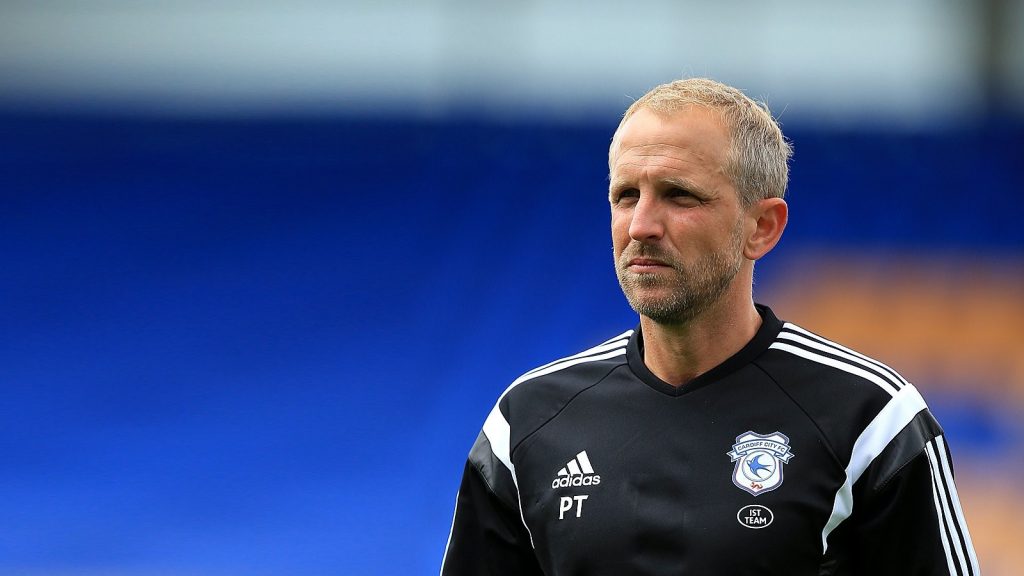
Twitter: @cardiffcityfc
Neil Warnock (October 2016 – November 2019)
Probably the most successful and memorable appointment of the Tan era, which is some achievement in itself.
The veteran Yorkshireman initially steered the Bluebirds away from the relegation zone before delivering an incredible promotion the following season, all while uniting a fractured club. In his third season in charge, he was within a Willian-afro hair’s width of delivering the most unlikely Premier League survival. This was a campaign where football was rightfully put into perspective following the tragic death of Emiliano Sala, something which the club has struggled to recover from ever since.
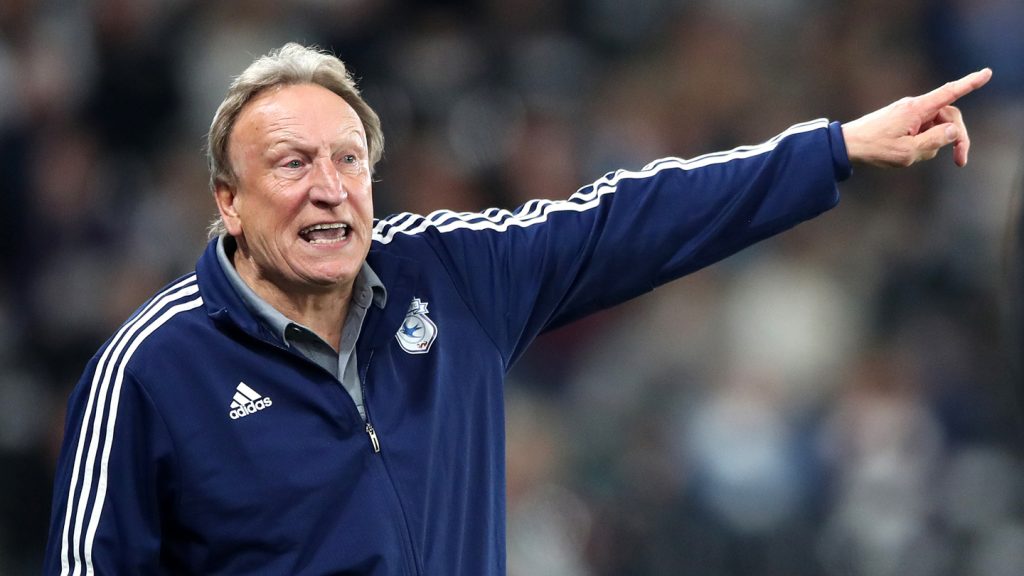
Credit: Cardiff City
Soon after relegation, Warnock was sacked after a poor start to life back in the Championship and later moved on to Middlesbrough, failing to deliver similar success there. Despite retiring soon after, he recently ruled himself out of a sensational return to the Cardiff City hotseat.
The Swansea lessons (June 2018 and June 2019)
During Warnock’s time as manager, the Swans went back to their ‘Swansea-way’ roots of the Rodgers and Roberto Martinez eras and appointed two of the English game’s most promising managers, both in the space of 12 months.
Graham Potter, a progressive young coach who made his name following an unlikely 2017 Europa League run with Swedish minnows Östersund which involved a victory over Arsenal at the Emirates, and Steve Cooper, another exciting up-and-coming coach who led his England youth side to the FIFA U17 World Cup.
Potter took a post-relegation, new look Swansea squad to within a few points of the Play-Offs in what was a promising season, winning plaudits along the way for his attractive brand of football. He left shortly after for Premier League club Brighton where he led them to consecutive club-record-high league positions in each of his three full seasons at the AMEX.
Earlier this season Chelsea snapped him-up for a reported £16 million fee, making him one of the most expensive managers in history. Despite a mixed season with the Blues so far, Potter is still regarded as one of the most promising managers in the game.
Towards the tail-end of Warnock’s time in the capital, Swansea appointed apparent-Bluebirds fan Steve Cooper as Potter’s replacement.
He soon led the Swans to their best start to a season in 41 years, before losing in the semi-final of that year’s Play-Offs. The following season he took his team to a fourth-placed finish in the league and to the play-off final where they lost to Brentford. The Welshman left the club by mutual consent afterwards and a month in to the following season took over at Nottingham Forest.
Then bottom of the league, Cooper oversaw a remarkable campaign as the Reds finished sixth and won promotion to the Premier League in the Championship play-off final. Forest are currently 13th in the top-flight with Cooper’s stock continuing to rise.
Both Cooper and Potter’s careers are a million miles away from the Cardiff appointments in this list and should be the examples that Vincent Tan looks to if he is to approach his next appointment with the sort of long-term thinking that the club so desperately needs.
Neil Harris (November 2019 – January 2021)
The former Millwall man had mixed results during the early part of his reign as he tried to change the playing style to a more possession-based game. The pandemic-enforced break came at the right time for him and following the move to behind-closed-doors games, the team won six of their last nine games to land themselves in the play-off places.
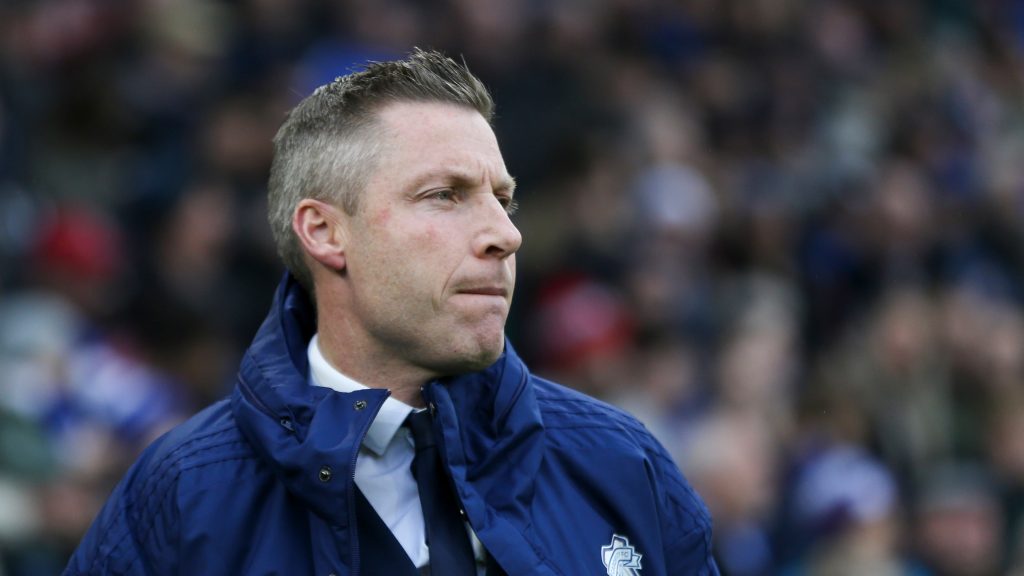
This was as good as it got for the Englishman as his team were soon batted away by Fulham in the play-off semi-final. Sacked after six defeats on the bounce the following season, Harris is now at League Two relegation threatened Gillingham.
Mick McCarthy (January 2021 – October 2021)
An outspoken Yorkshireman in the dugout at the Cardiff City Stadium was a familiar sight for Bluebirds fans although this is where the Warnock-comparisons ended – abruptly. McCarthy secured a two-year deal following six straight wins in what was only ever supposed to be a short-term appointment.
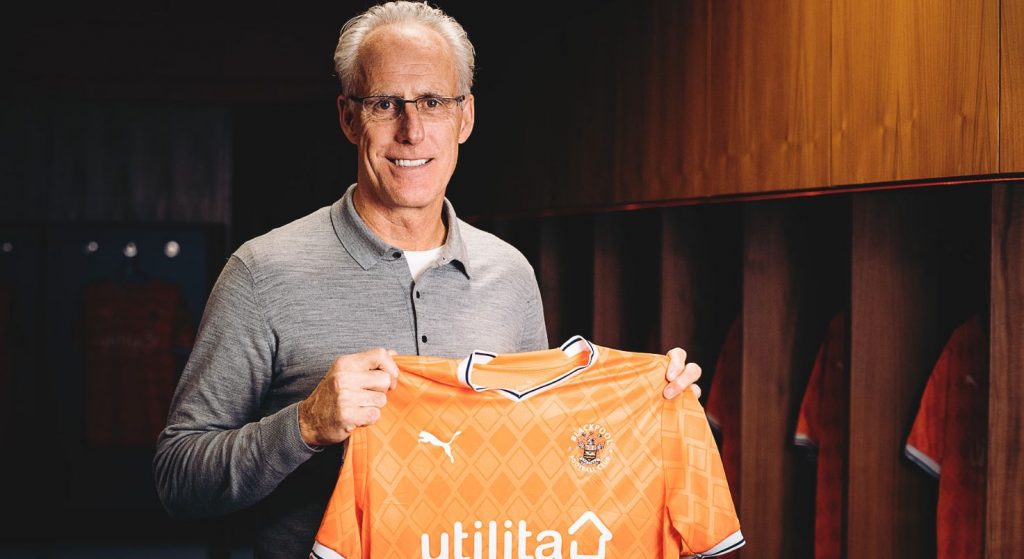
Twitter @blackpoolfc
Needless to say, after signing his extended contract, the team’s form collapsed the following season and Mick was soon sacked. He lost eight games on the bounce and made a raft of baffling tactical decisions, including playing five centre-backs against West Brom and Russell Martin’s Swansea which is still a running joke among many fans.
The one saving grace during this period was the number of youngsters given a chance by the former Republic of Ireland gaffer. The likes of Rubin Colwill, Isaak Davies and Joel Bagan all made their debuts under him. Since leaving City the 63-year-old hadn’t found another job but then was a surprise appointment as Blackpool manager, a job he said came “totally out the blue”. McCarthy will be looking to leapfrog his old employers in this season’s relegation battle.
Blackpool are one of the few teams beneath Cardiff in the Championship table; two places an three points beneath but with a game in hand on City .
Steve Morison (October 2021 – September 2022)
Appointed on a short-term basis (sound familiar?), the second former Millwall man to grace the CCS dugout managed to change the style of football into something far more pleasing on the eye, and on results.
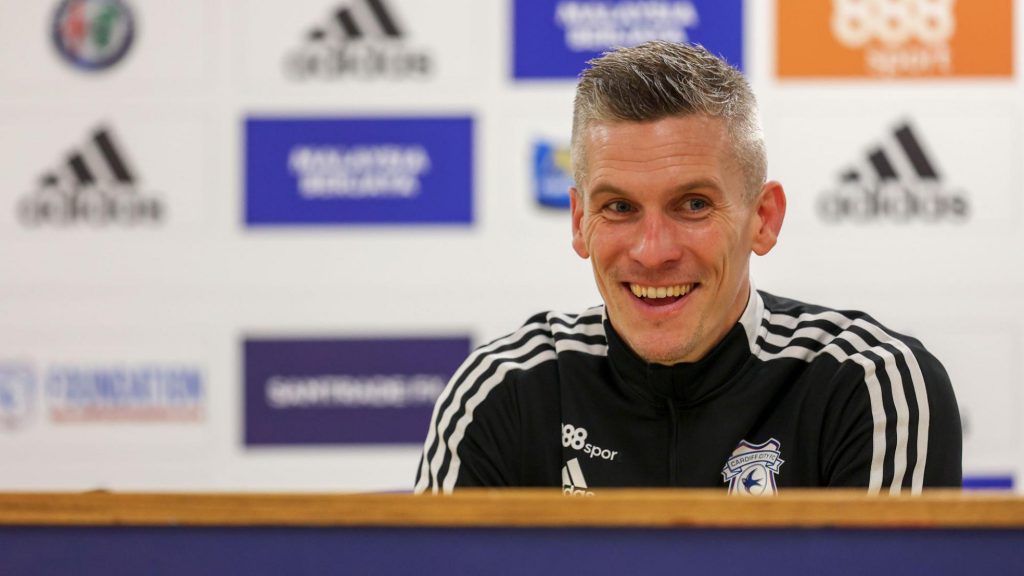
Credit: Cardiff City
He kept Cardiff in the league and subsequently got the job permanently. Given the task of overhauling an ageing squad, he brought in 17 players in last summer’s transfer window and moved on a number of higher earners.
A stop-start beginning to the season as the new signings bedded in saw Morison suffer the fate of his predecessors, and harshly so according to many fans who feel he was prematurely stopped in his tracks. He’s currently out of work but can largely hold his head high following his time in CF11.
Unfortunately, there was not a prolific goalscorer among Morison’s raft of signings – a fact that arguably put paid to his successor’s tenure too.
Mark Hudson (September 2022 – January 2023)
Former captain and club legend Hudson originally formed part of Morison’s backroom team and was initially given the top job on an interim basis, which of course became permanent just before the World Cup. Deja vu, anyone?
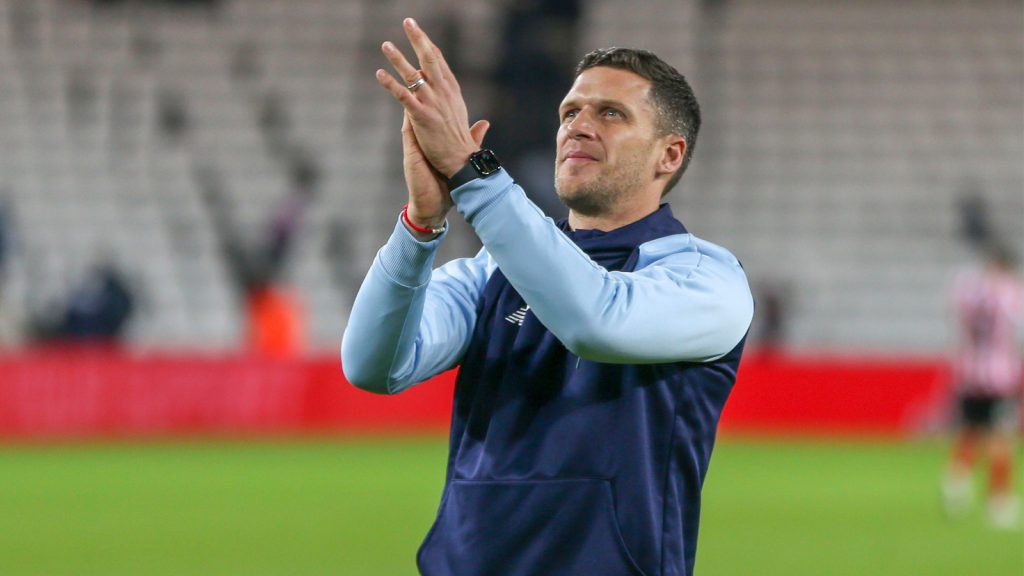
Credit: Cardiff City
Zero wins in six left the Bluebirds sleepwalking into a relegation dogfight with League One football firmly on the horizon – something which the club nor Tan can afford – and Hudson suffered the chop as a result. His defensive record was fair but goalscoring remained a problem.
Now without a job, he has been spending time with his family before considering his next move.
WATCH: The heartbreaking moment Hudson reveals to his children that he lost his job as Cardiff City manager.
What can Cardiff learn from this?
Vincent Tan must look to Swansea and the significant successes of three of their former managers, as well as the respectable careers that the likes of Carlos Carvalhal and Garry Monk have gone on to have as indications that there is a problem with the way Cardiff City recruit new bosses.
If he is to avoid repeating the mistakes of the club’s previous short-termist thinking then he must learn these lessons and bring in managers who are on-the-up, but with previous experience as a manager and with a consistency of style so the playing squad doesn’t have to be jettisoned every time, rather than flitting between real inexperience and outdated approaches.
If this requires him learning from heated rivals, as well as bringing more football brainpower to the club hierarchy and relinquishing his own grip on decision-making to produce better footballing decisions and protect his investement, then so be it.



